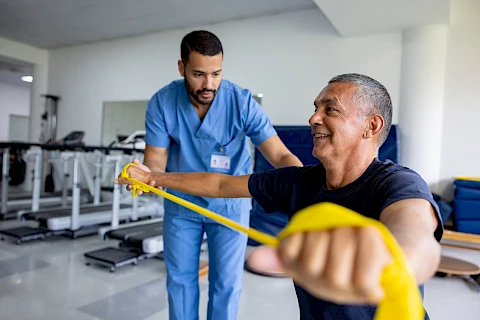
Surgery recovery can feel overwhelming for seniors. However, with the right plan, you can regain strength, mobility, and independence more quickly. Physical therapy is integral to this process, helping reduce complications and restore confidence in daily activities. Knowing how to take an active role in post-surgery therapy can make recovery more effective and empowering.
Physical Therapy and Recovery
Physical therapy is vital to the recovery process for seniors after surgery, helping restore mobility, strength, and function. Beyond moving better, physical therapy can also prevent complications such as blood clots and muscle atrophy. It also contributes to a better quality of life, helping seniors perform daily activities independently.
Actively Participating in the Healing Process
When seniors take charge of their therapy, they become partners in their healing process. This means listening to their bodies, communicating their needs, and sticking to their therapy plans. Approaching therapy sessions with a proactive mindset builds confidence, resulting in greater improvements.
Attending All Physical Therapy Sessions
Consistency is crucial in physical therapy. Attending all scheduled sessions ensures steady progress and prevents setbacks. To stay motivated:
- Mark therapy session dates on a calendar and set reminders.
- Set small goals and celebrate progress to maintain enthusiasm.
- Seek encouragement from family members or friends to keep commitments.
Completing At-Home Exercises
At-home exercises are an extension of therapy sessions, helping reinforce therapeutic goals. These exercises provide additional practice beyond scheduled sessions. Consider integrating them into daily routines, such as stretching during commercials or walking at set times each day. At-home exercises can be adapted for different comfort levels, ensuring they're both enjoyable and effective.
Asking Questions and Communicating with Therapists
Open communication with physical therapists ensures you make the most out of therapy sessions. Don't hesitate to ask questions if something is unclear. Some questions might include: "What are the goals of this exercise?", "Are there any movements I should avoid?", or "How can I safely practice this exercise at home?" Consult them too if there is a new exercise routine you want to try. Being informed empowers you to take control and make informed decisions about your recovery.
Maximizing Recovery Through Healthy Habits
Beyond physical therapy, adopting healthy habits can significantly impact recovery. Consider making lifestyle changes to support healing. Nutrition plays a crucial role, so eating a balanced diet rich in vitamins and minerals can aid in recovery.
Staying hydrated by drinking plenty of water helps with muscle function and overall healing. Ensure you’re getting enough sleep, as it is essential for healing and energy restoration. Consult with doctors for personalized recovery plans that take these factors into account, ensuring a holistic approach to healing.
Enhance Your Recovery Journey with Trusted Care from Senior Helpers
Post-surgery therapy is most effective when seniors stay consistent, communicate openly with their therapists, and adopt healthy habits alongside their exercises. By taking an active role, recovery can be smoother and more rewarding. If you or a loved one in Erie or Warren would benefit from support during this journey, contact us at Senior Helpers Erie. Our team is ready to provide guidance and compassionate care tailored to your recovery needs.